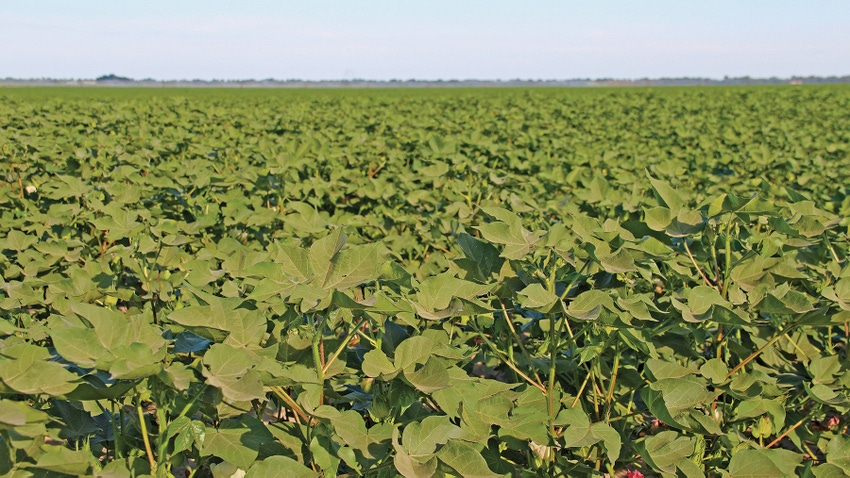March 31, 2023

If you’re wondering if carbon credits – agriculture’s latest buzzword – have any future in making a difference in farmers’ bottom lines, look up the term on Google or Bing or your search engine of choice.
What you’ll find is a list of one new entity after another that wants to assist farmers, the corporations looking to offset their carbon footprint, carbon credit brokers, verification providers and other middlemen in producing and trading carbon credits.
The companies range from AgriCapture, a firm founded by a Nashville, Tenn., farmland owner who is trying to help growers navigate the brave new world of carbon credits, to ZeroSix, a firm created by former oil company executives who want to stop carbon emissions from oil and gas wells and generate carbon credits.
AgriCapture, which last year became the second company to place a greenhouse gas reduction project in the Climate Action Reserve’s Soil Enrichment Project, is working with farmers on more than 50,000 acres of land in Arkansas, Louisiana, Missouri and Mississippi on carbon credits.
Realistic look
Despite the implications by some that installing new practices for sequestering carbon is an easy way for farmers to pocket $15 to $20 an acre, that isn’t a realistic outlook, according to John Farris, founder and CEO of AgriCapture.
“The only way to do a carbon credit project in the agricultural space is to do it thoughtfully,” he said. “This means you must spend the time with farmers and landowners examining past practices and discussing the potential of new climate-friendly practices that can increase yields, decrease input costs and generate high-valued carbon credits.
“Everything else in the agriculture carbon credit space is just noise."
FarmRaise, a farmer-led organization trying to help producers leverage digital tools to fund and manage cash flow, has developed a list of what it calls the Top 5 carbon credit companies on its website, www.FarmRaise.com. The list:
Indigo Carbon,
Nori,
The Truterra Carbon Program,
Bayer Carbon Initiative,
Nutrien Ag.
Payment announcements
Indigo Carbon or Carbon by Indigo recently announced payments of $3.7 million to 450 farmers who generated credits for sequestering carbon during the 2021 crop year. Growers who had credits for 2020 received an additional payment to reflect their $30 per credit final payment from the program for 2020. (Farmers receive 75% and Indigo Carbon 25% of the payments.)
“As we round the corner on our second year, we’re pleased to see that about 90% of farmers in our 2020 round continued their projects and generated payments in both years,” said Heather Gieseke, vice president of carbon commercial for Indigo Ag, the Boston-based company which created Indigo Carbon.
Currently, Indigo Carbon is available in Arkansas, Colorado, Georgia, Illinois, Indiana, Iowa, Kansas, Kentucky, Louisiana, Minnesota, Mississippi, Missouri, Nebraska, North Carolina, North Dakota, Ohio, Oklahoma, South Carolina, South Dakota, Tennessee and Texas.
FarmRaise says Nori is a “blockchain -enabled startup” that, unlike most other carbon marketplace participants, makes its payments in cryptocurrency.
“Companies purchase Nori tokens (the price depends on the market price of a carbon removal credit). Once it has a Nori token, the company can exchange it for an NRT or Nori Removal Token,” FarmRaise said. “Farmers create NRTs when they sequester one ton of carbon dioxide. That NRT translates into a Nori token which is priced at market value and can be sold when the holder chooses.
“Purchasers can buy tons of carbon in Nori tokens and bank them, then eventually exchange the Nori tokens for NRTs which count towards carbon removal. Farmers like this model because they can sell their banked carbon when it’s most beneficial to them.”
(Note: FarmRaise said Nori is still doing pilot programs now and won’t have Nori tokens available for corporate purchase until it has launched.)
No help without data
Truterra is a subsidiary of the Land O’Lakes farmer-owned cooperative. The Truterra Carbon Program is only available to farmers with data from 2016-2020, so it may not help growers who don’t have agricultural carbon data from those years, according to FarmRaise. If you do, Truterra is one of the few companies that will pay farmers retroactively for those practices.
You can determine if you are eligible to join by taking Truterra’s carbon survey.
The Bayer Carbon Initiative is a relatively new venture that is currently in the pilot program phase. Because of its long history and resources, Bayer is expected to roll out a strong program after the initial phase is completed.
New practices
Thus far, Bayer has indicated the new program, called ForGround, will only provide carbon credits to farmers for adopting new cover crops or no-till and strip till practices.
(Note: BASF Corp., also based in Germany, has announced plans to build a global framework to allow farmers to generate carbon credits from recognized certifiers that will lead to second revenue streams from their carbon reduction efforts.
(BASF Agricultural Solutions recently started multi-year field trials focused on sustainable agricultural practices, carbon sequestration in the soil and reduction of emissions at farm level. “The results of the trials are to lead to offers that allow farmers to capture synergies from innovative BASF technology,” the company said.)
Nutrien Ag, a seed, fertilizer, herbicide and software provider, started its two-year-pilot period for carbon credits in 2021 and exceeded their anticipated farmer participation, according to FarmRaise.
Because of its national and international reach, Nutrien has a “deep bench” of agronomists on staff to provide guidance for newly enrolled farmers, so entering the market may have additional benefits for farmers looking for guidance on how best to sequester carbon.
“As a global retailer, they have plenty of connections to influential companies who might be interested in purchasing carbon credits once the program is officially launched,” FarmRaise said.
Some farmers have been skeptical about the claims made by carbon credit providers. Attorneys who have reviewed carbon credit contracts suggest growers read the documents carefully to make sure they understand the commitments being made by both parties.
About the Author(s)
You May Also Like






